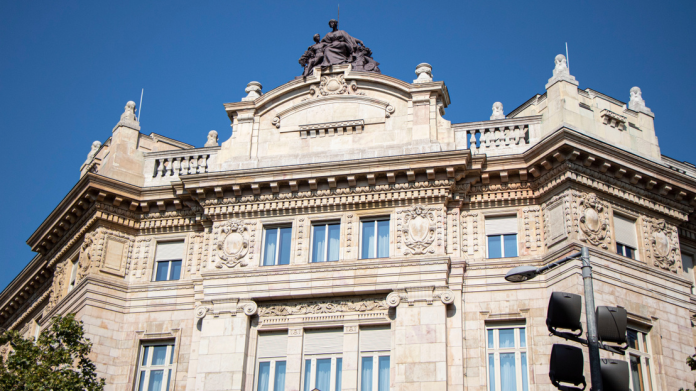Hungary’s banking sector achieved a historic milestone in 2024, reporting consolidated net profits of HUF2 trillion (€5 billion) despite facing significant economic pressures and government-imposed financial burdens, according to bne IntelliNews.
This record performance was largely driven by the country’s largest lender, OTP Bank, which contributed half of the sector’s total profits. MBH Bank, the second-largest lender by assets, recorded HUF206 billion in net income, while Erste Bank secured third position with HUF132 billion.
The remarkable results emerged against a backdrop of substantial fiscal challenges, including HUF104 billion in standard bank taxes, HUF128 billion in windfall levies, and HUF31 billion in losses related to interest rate caps. These caps have prompted lenders to challenge the measure in Hungary’s Constitutional Court. Despite earlier government pledges to phase out the windfall tax introduced in mid-2022, authorities confirmed last month that the levy would remain through 2026.
Compounding these pressures, banks agreed under government duress to freeze fee increases for retail clients until June 2026. Institutions that had already implemented inflation-linked fee hikes for 2025 must now provide customer compensation through refunds or fixed discounts.
Net interest income nevertheless rose by 10.1% on average among the top seven banks, with OTP leading this growth despite a declining interest rate environment. Dividend payouts surged to HUF762 billion, with K&H Bank and Raiffeisen Bank distributing 87% and 99% of their earnings respectively.
Lending trends and economic headwinds
Retail lending emerged as the primary growth engine, while corporate credit demand stagnated. The Hungarian National Bank (MNB) projects household loan volumes will rise by 11.5% in 2025, accelerating from 9.7% growth in 2023. Corporate lending, however, is expected to expand by just 4.5% following a minimal 1.6% increase last year across the financial system.
Meanwhile, economic activity contracted by 0.2% quarter-on-quarter in early 2025, partly due to declining industrial production. German companies—Hungary’s largest foreign investors—have slashed investment plans to their lowest level since Prime Minister Viktor Orbán took office in 2010, with only 16% planning capital expenditure increases amid weak demand.
The sector’s resilience presents a paradox, as record profits coexist with structural economic vulnerabilities, regulatory uncertainty, and the highest inflation in the EU at 4.1% forecast for 2025.
